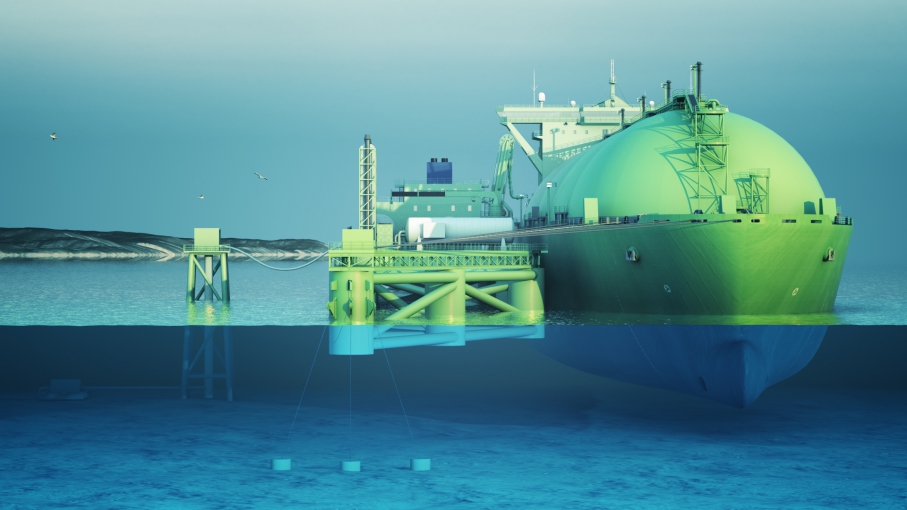An agreement with the potential strategic partner is expected to be concluded in the second half of October, when a delegation from the Ministry of Economy (EM) will visit South Korea, including representatives of the Skulte LNG Terminal project.
The name of the potential strategic partner has not been officially confirmed but the Ministry of Economics has admitted that Kogas is interested in the project, LSM reports.
The terminal could have regional significance as though Latvia does not currently have a dedicated LNG terminal, it does possess the huge Inčukalns gas storage facility.
Renars Miķelsons, Director General of JSC "Skulte LNG Terminal", said in a conversation with LSM.lv that Skulte LNG Terminal has so far met several companies from different countries who have expressed interest in developing the project to build a terminal at Skulte Port.
The total investment in the project is estimated at EUR 90 million, including EUR 60 million for the construction of the terminal in the Gulf of Riga about 2.5 kilometers from the coast and EUR 20 million for the construction of a 40 kilometer gas pipeline from the port of Skulte to the Inčukalns underground gas storage facility.
The cost of constructing the pipeline has been estimated by Conexus Baltic Grid (Conexus), Miķelsons said, pointing out that an investment "reserve" of EUR 10 million is also included to account for additional expenses and price fluctuations.
Miķelsons said a US commercial bank has pledged to finance the project by promising to lend to Skulte LNG Terminal 85%, or EUR 78 million, on condition that the equipment supplier comes from an OECD country. The remaining 15% should be provided at an early stage by the strategic partner.
Economics Minister Ralfs Nemiro is scheduled to discuss the matter with the Minister of Economy of South Korea on October 20. The talks are intended to give a "diplomatic green light" to South Korean company investments in Latvia, according to Beata Jonite, an advisor to Nemiro.
Citing "unofficial but reliable sources", LSM.lv said that during the visit to South Korea, the project promoters of the Skulte LNG Terminal and Kogas are planning to sign a letter of intent, including further steps in the development of the project.
Korea Gas Corporation was incorporated by the Korean government in 1983. Since its founding, it has grown to become the world's largest LNG importer and operates four LNG terminals and a nationwide pipeline network spanning over 4,857km in order to ensure stable supply for Korea.
KOGAS produces and supplies natural gas, purifies and sells gas-related by-products, builds and operates production facilities and distribution network, and imports and exports natural gas for domestic and overseas markets as well as carrying out exploratory work for new gas fields.






























